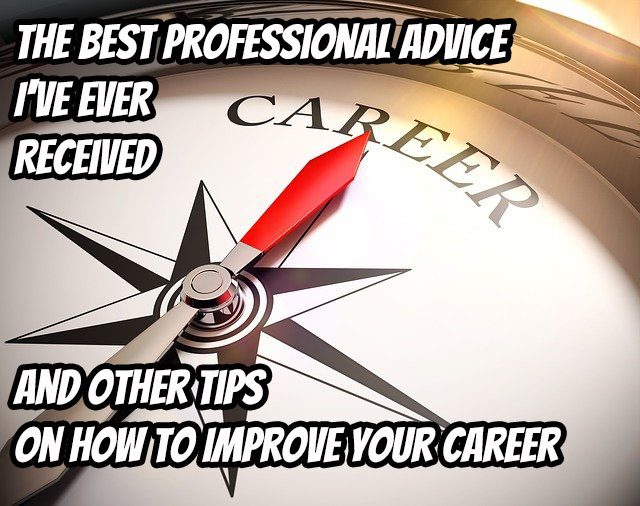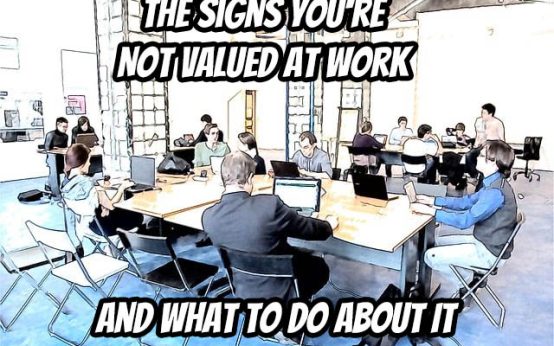What is the best professional advice that you have ever received?
 The best professional advice that I have ever received is to always be myself. It may sound simple, but it’s something that I remind myself of every day. Being genuine and authentic allows me to stay true to my values and who I am as a person. This helps me build long-term relationships with the people around me, both professionally and personally. Another piece of advice that has helped me in my career is to always be open to new opportunities. When an opportunity comes your way, don’t be afraid to explore it! Even if it doesn’t end up being a good fit for you, you’ll learn something valuable in the process. Finally, I was once told that having a positive attitude is key when it comes to advancing your career. No one wants to work with someone who is negative all the time. Stay upbeat and optimistic, and you’ll be surprised at how far it will take you!
The best professional advice that I have ever received is to always be myself. It may sound simple, but it’s something that I remind myself of every day. Being genuine and authentic allows me to stay true to my values and who I am as a person. This helps me build long-term relationships with the people around me, both professionally and personally. Another piece of advice that has helped me in my career is to always be open to new opportunities. When an opportunity comes your way, don’t be afraid to explore it! Even if it doesn’t end up being a good fit for you, you’ll learn something valuable in the process. Finally, I was once told that having a positive attitude is key when it comes to advancing your career. No one wants to work with someone who is negative all the time. Stay upbeat and optimistic, and you’ll be surprised at how far it will take you!
What would you advise someone who is just starting out in their career?
When you’re just starting out in your career, it’s important to remember a few things.
- Make an impact. You want people to take notice of what you do and how you do it.
- Stay true to yourself. It’s easy to get caught up in office politics or the desire to fit in, but don’t let go of who you are as a person.
- Celebrate shared experiences with your colleagues. Feeling like part of a team is essential for happiness at work.
- Be self-aware and communicate effectively with others. This will set you up for success both professionally and personally.
- Develop your business and leadership skills by working with a coach or mentor.This can involve stretching yourself and learning new things, like reading the Capitalist Exploits newsletter.
- Identify your strengths and find ways to use them within your company culture and brand identity
What are some other pieces of advice that have helped you in your career?
There are so many great pieces of advice out there that it’s hard to know where to start. But one thing is for sure: you have to be open to new opportunities if you want to progress in your career. You also need to be willing to take risks and venture outside of your comfort zone. Another important piece of advice is to always consider your career path, and be willing to explore new options. Keep an open mind, and don’t be afraid speak up or ask the important questions. It’s also crucial that you dress for the job you want, not the job you have. Above all, remember that a job doesn’t give your life meaning or define who you are as a person.
Who to ask for career advice
When it comes to advancing your career, don’t be afraid to ask for help. It can be tough to know who to turn to, but there are plenty of people out there who would be more than happy to offer their advice. Here are a few tips on where to start: First, think about the people you know who have personal experience with your goal. Ask them how they achieved their success and what advice they would have for you. For example, if you want to learn how to profit from real estate foreclosures ask a realtor or real estate investor for some advice. Second, reach out to someone who is going through a similar situation. Ask them how they overcame any challenges they faced and what advice they would give you. Finally, consider talking to a mentor or coach. They can help you develop a plan of action and provide guidance along the way.
How to ask for career advice
When it comes to seeking advice for our careers, most of us are uncertain on how to go about doing so. After all, we don’t want to seem unprofessional or bothersome. However, if done correctly, asking for career advice can be a great way to gain insight and clarity into what you should do next in your career. Here are a few tips on how to ask for career advice:
- Ask specific questions. Don’t just ask general questions like “What should I do with my life?” Be more specific in your questioning and provide as much information as possible. This will help the person you’re asking give you better advice that is tailored specifically to you.
- Invest in the relationship with your mentor/coach/advisor. Make it a two-way street. Just because you’re asking someone for help doesn’t mean they should do all the work! Make sure you’re also putting in effort yourself by being communicative and responsive.
- Ask about their experience (and listen!). When speaking with someone who has been where you want to be, ask them about their journey and what they did along the way that helped them succeed. Not only will this show that you’re interested, but you’ll also be able to get some great advice from them!
- Invest in your career by hiring a career coach or someone to mentor you. Sometimes it’s helpful to have an external person to help guide and support you through your career journey. If you can’t find a mentor in your personal life, consider looking for one online or through professional organizations.
- When asking for advice, don’t ask for answers. Oftentimes we want someone else to give us the answer to our question so that we don’t have to think about it ourselves. However, this is not what mentors are for! A good mentor will help you come up with your own solutions and help equip you with the tools necessary to make decisions on your own.
6 pieces of the best career advice we’ve found
Advice for entering the workforce
Starting your career can be daunting, but with the right advice it can be a lot easier. Here are 6 pieces of the best career advice we’ve come across:
- Career vision is important, and it can provide motivation in difficult situations.
- Career path challenges should be taken with a grain of salt, as no career is without them.
- Learn as much as you can to prepare for your career – this could include pursuing higher education or learning new technical skills.
- Take advantage of on-the-job training and job shadowing to learn what a role is like before jumping in headfirst.
- Sometimes, it’s better to politely decline a job offer than to get blown off course; this could happen if the position doesn’t match your interests or goals closely enough .
- Don’t be afraid to say no if an opportunity doesn’t seem like the right fit – this will help keep you focused on what you want out of your career .
Advice for advancing in your career
Career success is often a result of stepping into chaos and making a difference.
Don’t be afraid to take on new challenges – this is how you’ll grow and learn.
Working with a career coach helps identify strengths and develop introspection skills. A coaches help leaders become more introspective, which is an important skill for personal growth.
Career planning should happen at least once a year; it’s important to stay up-to-date on the latest industry trends so that you can make informed decisions about your future.
Talk to others who are working in the same field as you – this will help you avoid mistakes they’ve made and better understand what’s expected of you in your career.
Finally, work-life balance is important to protect against burnout later in your career; make sure to take some time for yourself every day!
Another idea is to start a side hustle in order to explore different options in other industries that you might enjoy. Some people have found that they love the flexibility of a side hustle like being a delivery driver for DoorDash.
Advice for the job you dislike
It can be tough to find a job that you love, and sometimes you might end up in a position that you don’t enjoy. However, it’s important to remember that it’s not all bad! Here are some pieces of advice for the job you dislike: Don’t focus on what you don’t like, but instead write out a day in the life of your dream job. What kind of work are you doing, and who are you doing it with? A lateral move could be a good way to revitalize your career. If you are unhappy with your experience at work, share that with the appropriate team members or HR. Psychological safety is a necessary component for job satisfaction. Volunteer time and resources to help others in or outside of the workplace, as this will increase your own happiness.
Advice for changing jobs
Making a career change can be daunting, but it’s not impossible. Here are some tips to help you get started: Start by exploring the opportunities in the company you’re currently working in before quitting. It’s always good to reinvent yourself at work. It’s also a good idea to start new habits as part of the change process. This could mean anything from waking up earlier to networking more often. When making a career change, it’s important to remember that you’re starting with yourself and what you want others to see. Make sure you know who you are and what your strengths are before reaching out to potential employers. Finally, be ready to share your best self with the world!
Advice for job hunting
When you’re starting your job hunt, it’s important to know the rules. Here are a few key points to keep in mind: Do your research on the company and the position before applying. Know what salary you are expecting and be prepared to negotiate. Make sure you can speak confidently about your skills and experience in an interview. Be clear about what you’re looking for in a new job. That includes both your short and long-term goals. Even if you’ve been in the same role for a while, don’t forget to brush up on your interviewing skills!
Advice for starting your own business
Starting your own business can be a daunting task. However, there are a few things you can do to increase your chances of success: Be accountable to yourself & have a coach help you out with developing skills like communication and self-awareness. Focus on what makes your business unique and most successful. Look for experts outside of the business to help out – this could include consultants, lawyers, accountants, or other professionals who specialize in helping startups grow.
Advice to find your joy at work
Your passions are discovered by taking chances and exploring new career paths. Sometimes, it’s about making a change in your lifestyle to figure out what you’re truly passionate about. For example, if you’re working at a job that doesn’t let you be creative, try freelancing on the side or starting your own business. Another way to find your joy at work is to connect with your inner child. What did you love doing when you were young? Maybe you enjoyed being outdoors, playing sports, or reading books. Consider revisiting those activities and see if there’s a way to incorporate them into your career path. When looking for jobs, think back to when you were young and imagine your ideal job then. Don’t be afraid to aim high – dream big! The best careers don’t always require a college degree; sometimes all it takes is some creativity and hard work. Inner Work is key to career success: It’s important that we take time for reflection so that we can assess our strengths and weaknesses honestly. Only then can we identify the steps we need to take in order reach our goals.
It’s never too late: How to change careers in your 40s
It’s never too late to change careers. In fact, many people make the switch in their 40s. So if you’re feeling lost or uncertain about your current career path, don’t worry – you’re not alone. The good news is that making a career change later in life is definitely possible. But it won’t be easy, and it will require a lot of effort on your part. Here are some tips to help you get started:
1) Do your research: The first step is to do some research and figure out what kind of career you want to pursue. Don’t just focus on what you’re passionate about – think about what you’re good at and what you enjoy doing as well.
2) Get organized: Once you know what type of job you want, start getting organized. Create a resume, start networking with people in your desired field, and sign up for classes or workshops that can help prepare you for the transition.
3) Take action: Don’t wait around – take action and start pursuing your new career goals! It may take time and hard work, but eventually you’ll reach your destination.
Undecided between careers? Here’s how to choose one
It can be tough to decide which career path to take. After all, you only have one life and it’s important to make the right choice! Here are a few tips that might help you out:
First, it’s important to know the pros and cons of each career choice. This will help you make an informed decision about what you want to do.
Second, explore your personality when deciding what field you should work in. Don’t just rely on an MBTI test – your personality is more complex than that!
Third, consider taking a formulaic approach to choosing a career. This can be helpful if you’re feeling lost or uncertain about what you want to do. However, keep in mind that this is only a starting point – your career path won’t necessarily follow this trajectory.
Fourth, remember that our career paths are never linear. There is no “right” or “wrong” way to choose a profession – just because something worked for someone else doesn’t mean it will work for you too.
Fifth, don’t forget that there is no such thing as the perfect job function! A job function might not exist when you leave college; so choose one that’s new or has evolved over time to see if it’s your calling.
Sixth, be open to the idea of changing careers later on in life. You never know what might happen, and it’s always good to have a Plan B.
Finally, take advantage of opportunities as they come your way. The things you enjoy doing will determine which career is right for you!
When searching for the best professional advice, people also asked these questions:
What is the best professional advice you ever received?
How do I get professional advice?

There are a few different ways that you can get professional advice. You can start by doing some research on your own and then seeking out advice from professionals in the field. This could involve reading books or articles, attending conferences or seminars, and/or participating in online forums or discussion groups. Another option is to hire a professional consultant who can provide you with tailored advice based on your specific needs. This can be an expensive option but it may be worth it if you need specific and actionable advice. You can also try asking for advice from people you know who are experts in their respective fields. If you have friends or family members who work in professional roles that you’re interested in, don’t forget to ask them as well.
What is the best career ever?

There's no one best career, since everyone's interests and skills are unique. However, there are some careers that tend to be more satisfying than others, based on factors like job satisfaction, work-life balance, and salary. Here are a few of the best careers overall: 1. Healthcare: Healthcare workers report high levels of job satisfaction and work-life balance, as well as good salaries. There are many different roles in healthcare, so you can find a position that fits your particular skills and interests. 2. Technology: The tech industry is booming right now and shows no signs of slowing down. If you're skilled in coding or other tech-related areas, you can have a very successful career in this field.


 The Signs You’re Not Valued at Work and What to Do About It
The Signs You’re Not Valued at Work and What to Do About It  10 Tips for Working Away from Home Without Going stir Crazy
10 Tips for Working Away from Home Without Going stir Crazy  Can IoT Make Money? – 5 Ways to Monetize IoT
Can IoT Make Money? – 5 Ways to Monetize IoT ![[Beginner's Guide] How to Make a Money Maker Welding Rig](https://theministerofcapitalism.com/blog/wp-content/uploads/2022/08/Beginners-Guide-How-to-Make-a-Money-Maker-Welding-Rig.jpg) [Beginner’s Guide] How to Make a Money Maker Welding Rig
[Beginner’s Guide] How to Make a Money Maker Welding Rig  Do Barbers Make Good Money? 5 Reasons Why Being a Barber Can Be a Successful Career For You
Do Barbers Make Good Money? 5 Reasons Why Being a Barber Can Be a Successful Career For You  Job Creation Smashes Expectations
Job Creation Smashes Expectations